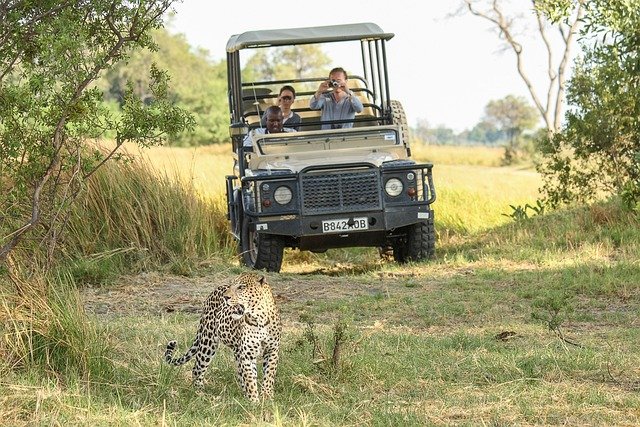Going on a safari is a dream for many travelers, offering a once-in-a-lifetime opportunity to witness wildlife in its natural habitat. However, one of the first questions that comes to mind when planning such an adventure is: What does a safari trip cost? The answer isn’t simple, as the cost varies depending on multiple factors, including destination, accommodation, duration, and time of year. In this in-depth guide, we’ll break down everything you need to know about budgeting for a safari, ensuring you make the most of your experience without breaking the bank.
Factors That Influence What a Safari Trip Costs
The cost of a safari trip is influenced by numerous factors, including:
- Destination
- Different countries have different price ranges. For instance, a safari in Kenya or Tanzania is generally more affordable than one in Botswana or Namibia.
- Popular safari destinations like the Serengeti, Maasai Mara, and Kruger National Park often have a range of options from budget to luxury.
- Type of Safari
- Self-drive safaris can be more affordable, while guided safaris with expert rangers cost more.
- Private safaris with a personalized itinerary cost significantly more than group safaris.
- Accommodation Style
- Budget: Camping or basic lodges ($50 – $150 per night).
- Mid-range: Comfortable lodges and tented camps ($200 – $400 per night).
- Luxury: High-end lodges with premium services ($600 – $2,000+ per night).
- Duration of the Safari
- A 3-day safari will naturally cost much less than a 10-day adventure.
- Most safaris range between 3 to 14 days, with longer trips offering better value per day but a higher total cost.
- Time of Year
- Peak season (June to October) costs significantly more due to the Great Migration and optimal wildlife viewing.
- Shoulder season (April-May, November) offers moderate prices.
- Low season (March and December) is the most budget-friendly but might come with unpredictable weather.
- Park Fees and Permits
- Most national parks charge entry fees ranging from $10 to $100 per person per day.
- Private reserves often have separate fees but may include exclusive experiences.
- Additional Costs
- Flights: International flights to Africa can range from $800 to $2,500 depending on the departure city and airline.
- Internal Transfers: Charter flights, road transfers, or domestic flights add extra expenses.
- Tips & Gratuities: Guides, rangers, and lodge staff typically expect tips, which can add up.
- Activities: Hot air balloon safaris, night drives, and cultural tours cost extra.

Breaking Down Safari Costs by Budget Type
Budget Safari ($1,000 – $3,000 per person for 3-5 days)
For those looking to experience a safari without spending too much, budget options include:
- Joining group tours to share costs.
- Staying in national park campsites or budget lodges.
- Opting for self-drive safaris in countries like South Africa and Namibia.
- Choosing less touristy parks where fees are lower.
Mid-Range Safari ($3,500 – $6,000 per person for 5-7 days)
A mid-range safari provides a balance of comfort and affordability. Expect:
- Comfortable lodges and tented camps with quality services.
- Guided game drives with experienced rangers.
- A mix of private reserves and public parks.
- Inclusive packages that cover meals, park fees, and game drives.
Luxury Safari ($7,000 – $20,000+ per person for 7-14 days)
For travelers who want a high-end experience, luxury safaris offer:
- Private game drives with expert guides.
- High-end lodges and tented camps with fine dining.
- Exclusive wildlife encounters in private reserves.
- Additional experiences like helicopter rides or bush dinners.

How to Save on Safari Costs Without Sacrificing the Experience
If you’re asking, what does a safari trip cost and looking for ways to reduce expenses, here are some smart strategies:
- Travel During the Shoulder Season – You’ll still see wildlife but at lower prices.
- Choose Less Popular Parks – Parks like Ruaha in Tanzania or Kgalagadi in South Africa offer great experiences at lower costs.
- Book in Advance – Early bookings often come with discounts.
- Opt for Overland Safaris – Road-based safaris are cheaper than flying between locations.
- Self-Drive in Certain Destinations – South Africa and Namibia offer safe and budget-friendly self-drive options.
- Consider a Camping Safari – Mobile tented camps can cut accommodation costs dramatically.
- Look for All-Inclusive Packages – These often provide better value than piecing together individual costs.

Is a Safari Worth the Cost?
Absolutely! A safari is an unparalleled adventure, offering:
- Unforgettable wildlife sightings.
- Unique cultural experiences.
- Breathtaking landscapes and natural wonders.
While it can be costly, careful planning can help you find an option that fits your budget. What does a safari trip cost? Ultimately, it depends on your preferences and choices, but with the right approach, a safari can be accessible to a variety of travelers.
Final Thoughts
A safari trip cost varies widely based on multiple factors, but whether you’re on a budget or seeking luxury, there’s a safari experience for everyone. By understanding the various costs involved, choosing the right time, and making smart financial decisions, you can embark on an extraordinary adventure without overspending. So, start planning, set your budget, and get ready to witness the magic of the wild firsthand!
You can read: What Is the Best Country to Go on a Safari?

